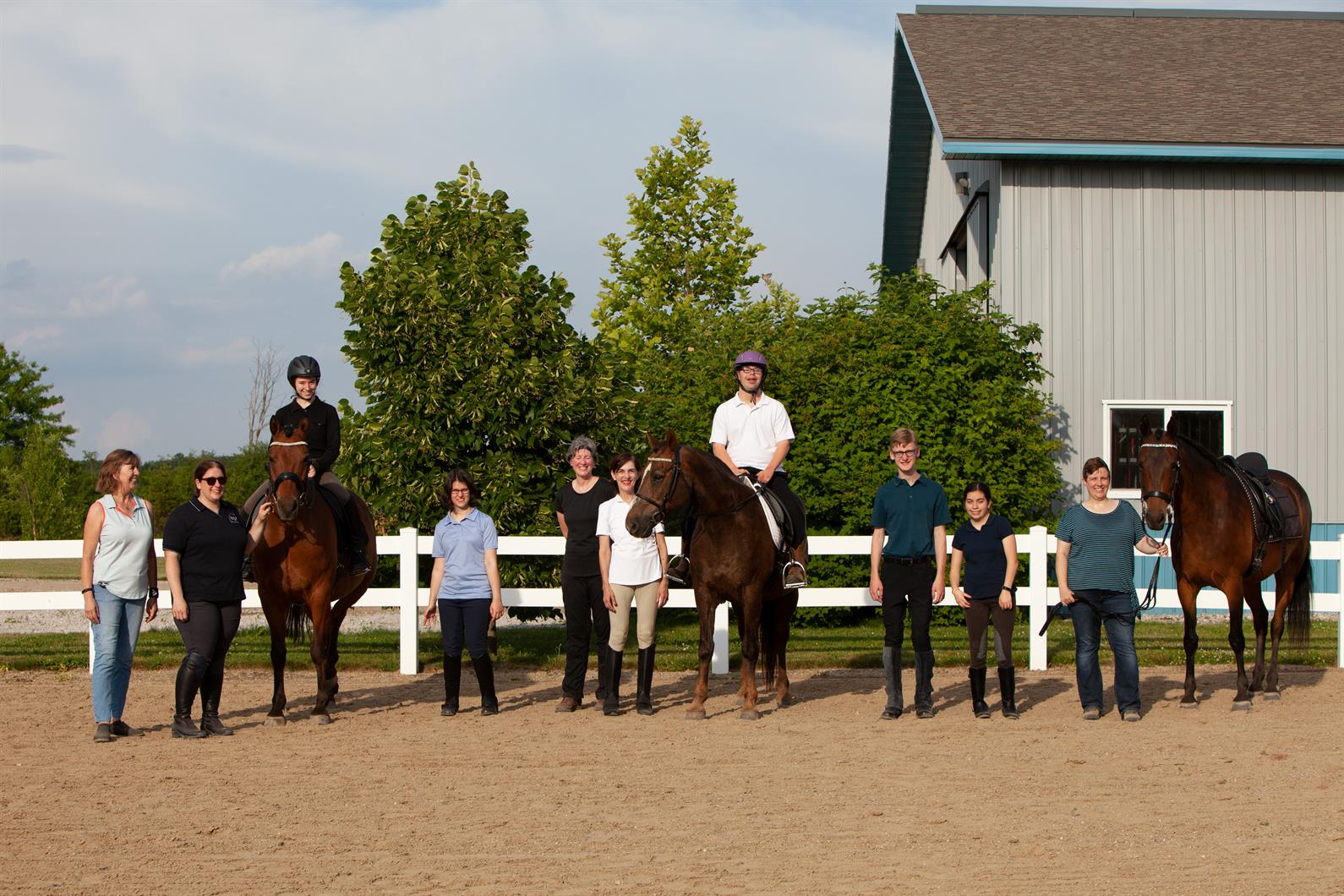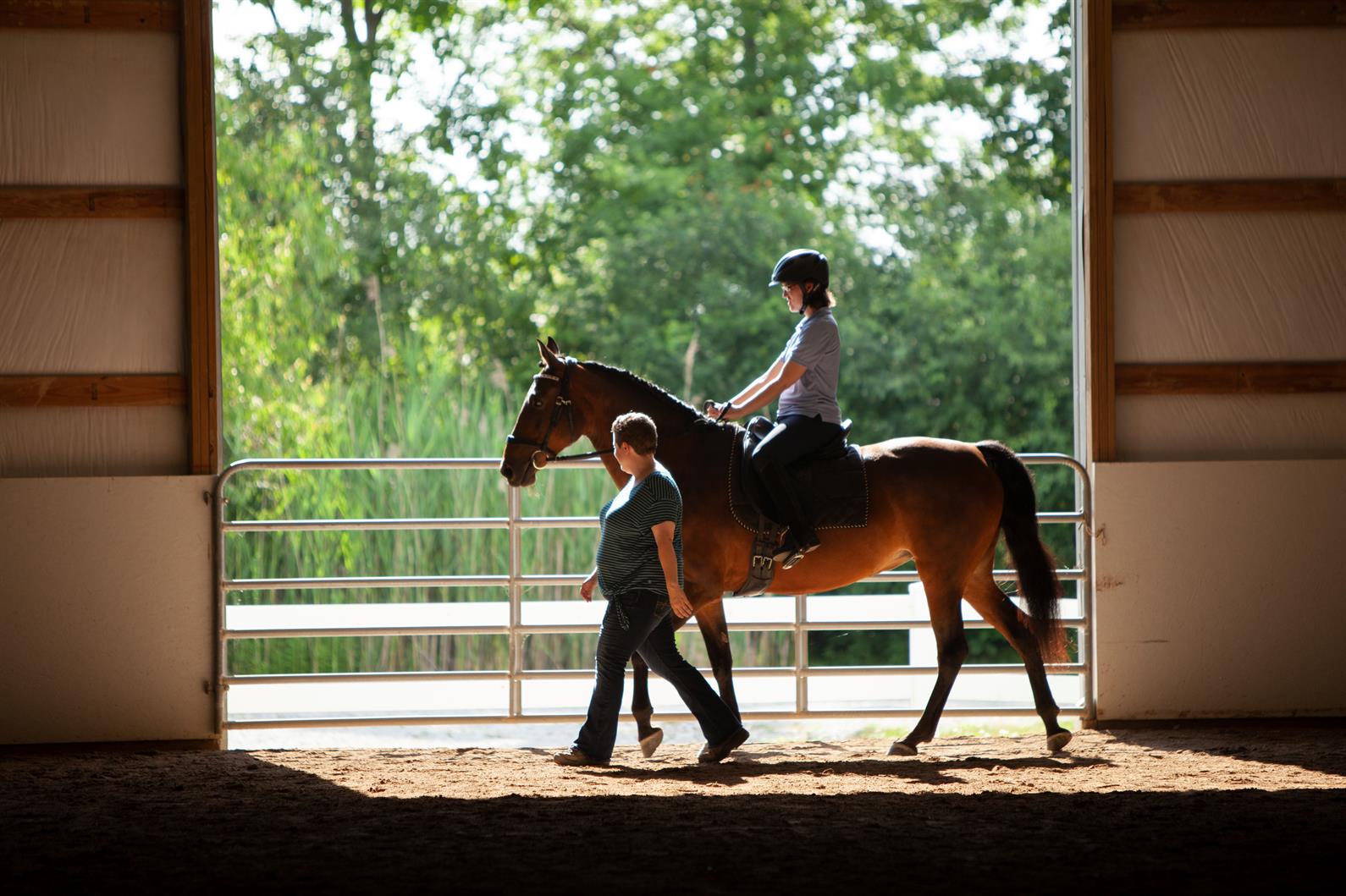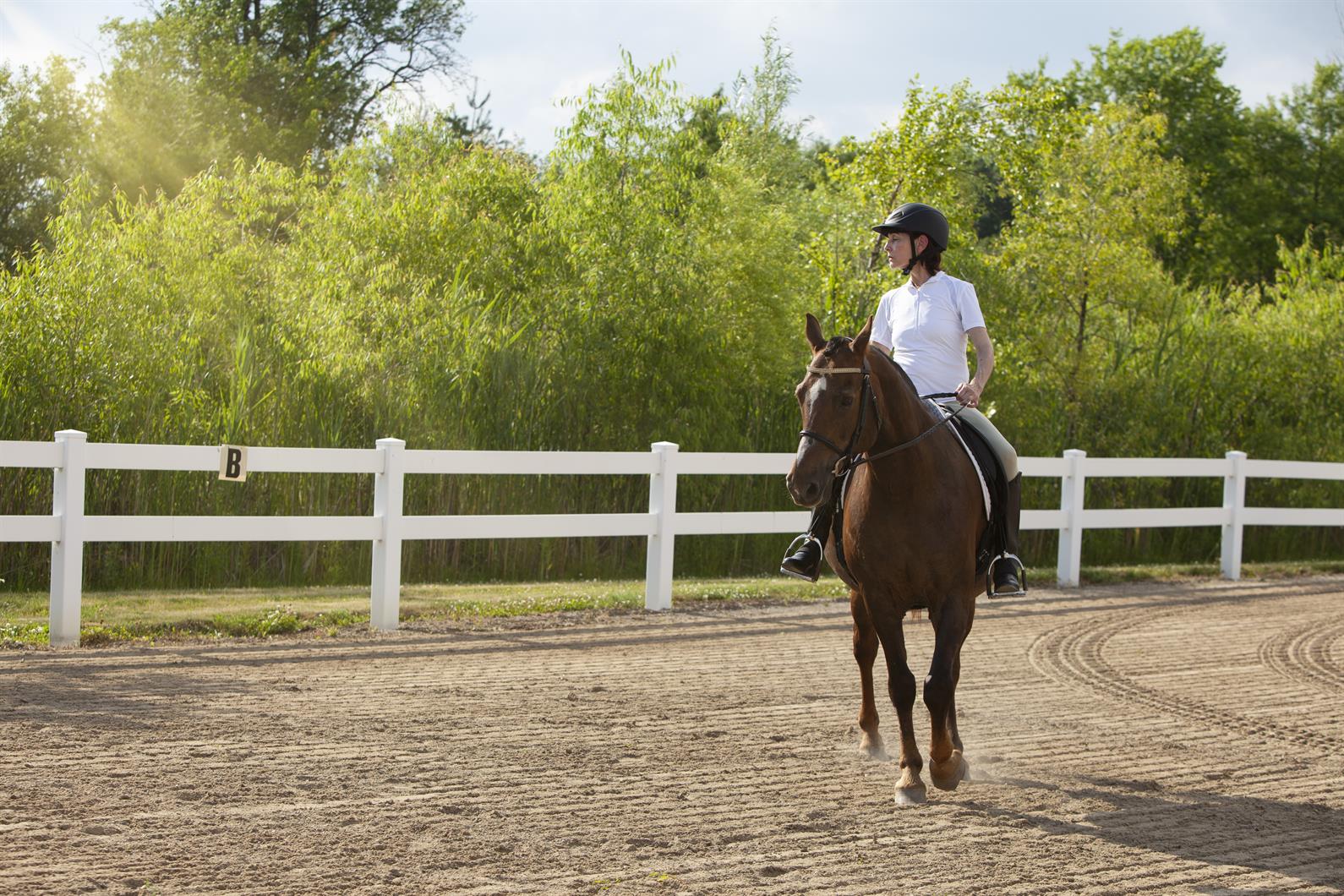Therapeutic Riding, Inc., is one of the United States Equestrian Federation/United States Para-Equestrian Association International Para-Equestrian Centers of Excellence providing up-and-coming athletes with quality para-equestrian sport programs. TRI was founded in 1984 as a therapeutic riding facility in Ann Arbor, Mich., to help those with disabilities experience horseback riding and its many benefits. TRI is celebrating its 35th anniversary this year, and it shows no sign of slowing down in providing wonderful programs.
“[TRI] started off with just a handful of riders and a couple of horses in a borrowed facility operating our program one or two nights a week just in the spring and the summer,” explained Jennifer Beyer, TRI’s volunteer manager and instructor. “We have very steadily and slowly grown over the years. For many years, we leased a facility in Ann Arbor that served our needs for some time, but then, in 2010, we moved into our own purpose-built facility because we had outgrown the one we were leasing. That was our huge step forward for our program.”

(Courtesy of Laura Adams Photographic Art)
Nine staff members, a mix of full- and part-time workers, run TRI’s robust programs. Beyer is a bronze-level USEF para-dressage coach, as well as one of four instructors at TRI certified by the Professional Association of Therapeutic Horsemanship International. Fourteen horses serve as the mounts in the therapeutic and para-dressage riding lessons. TRI’s programs would not be possible without the 230 volunteers who assist TRI and approximately 120 students in the therapeutic riding and para-dressage programs.
“Our program is very, very much focused on teaching horsemanship and horseback riding,” noted Beyer. “What we really focus on is laying the foundation for anybody, within their ability and within whatever type of support they need, to teach them how to ride. Any time somebody walks through the door, regardless of their disability, we are hatching a plan of how we can teach them so that, hopefully, someday they can ride independently.”
TRI’s core program consists of group therapeutic riding lessons for riders from age four up to 80, with the concentration being 20 and under. For individuals looking to take the next step with their riding, TRI offers para-dressage lessons.
“We have private and semi-private [para-dressage] lessons available to our rider population, as well for anyone looking to advance their riding, whether they are para-eligible or not,” said Beyer.
With TRI’s top-notch facility that was built in 2010 and more students showing interest in para-dressage lessons, it made sense for TRI to apply to become a COE.

(Courtesy of Laura Adams Photographic Art)
“With therapeutic riding lessons, we could get people started and we could get riders to a point where they were riding independently or had mastered some good riding skills, and we were looking for opportunities to take them to the next level or to show them what the possibilities were,” said Beyer. “Whether or not anybody wants to go to a horse show or go to the Paralympics is sort of beside the point, but having that as a potential motivator influenced us to become a COE.”
TRI’s drive to expand the students’ horizons made the decision an easy one. The staff applied to become a COE in early 2018 and received TRI’s accreditation in October 2018.
The COE accreditation has positively affected TRI in a variety of ways. Beyer noted that conversations with donors were successful thanks in part to the added recognition of being a COE, currently the only one in the Midwest. Also, she believes that TRI being a COE is an excellent resource for future athletes and raises awareness of the opportunities available for people with disabilities.
“I think the biggest thing is that it really has helped bridge that gap or that divide between therapeutic riding centers and para-dressage, specifically. For a long time, therapeutic riding lessons were perceived as kids on ponies being led around. While they are getting a great experience, taking that next step wasn’t always a possibility,” said Beyer. “We have the riders in our ranks who could become the next generation of para-equestrians. They’re here. … It is pretty cool that it has helped us have those conversations making parents and caregivers a lot more aware of the possibilities, because they don’t know.”
Beyer has had six students transition from therapeutic riding to para-dressage lessons, but they don’t always see themselves as athletes. However, being an athlete becomes a realization as they continue their riding education.
“It is important for people with disabilities to be able to compete and to be able to pursue a hobby or a sport they choose, as opposed to being restricted by their disabilities,” said Beyer.

(Courtesy of Laura Adams Photographic Art)
While COEs providing para-dressage lessons can help increase the talent pool for the U.S. team, Beyer pointed out that COEs also provide a sense of community that is so common in equestrian sport.
“We have a young woman who competes locally here in rated shows, and she is the only one in her class every time, so aside from that being a lot of fun for her, there’s not that camaraderie or meeting other athletes that we would have as able-bodied people going to a horse show,” explained Beyer. “I think that is super-important, to build that community to connect riders to each other and to connect coaches and trainers to riders, as well. The more we have out there and the more we put it out there, the stronger the whole sport is going to get.”
Four of Beyer’s students are working to be classified to para-dressage competition. Some of her students are ready to participate in competitions, starting either this year or next year. Time will tell how far her students will go with their goals.
“We are thrilled to be part of this [COE program] and we try to do our little piece to help out,” said Beyer.
Stay up to date with U.S. para dressage by following USA Para-Dressage on Facebook and US Equestrian on Twitter and Instagram.
Want more articles like this delivered to your inbox every week? Sign up here to receive our free Equestrian Weekly newsletter.
This article is original content produced by US Equestrian and may only be shared via social media. It is not to be repurposed or used on any other website aside from USequestrian.org.


